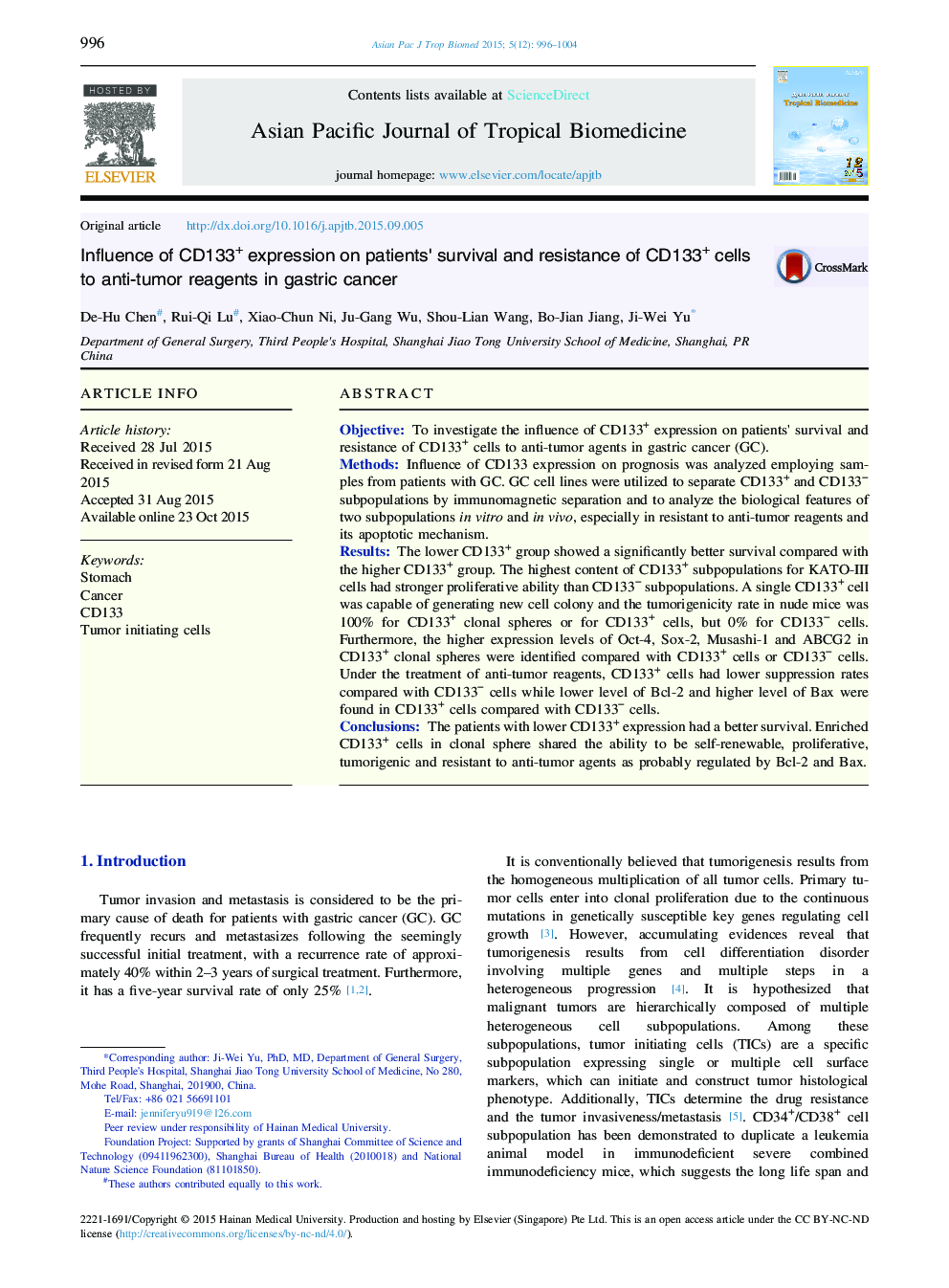| Article ID | Journal | Published Year | Pages | File Type |
|---|---|---|---|---|
| 2032424 | Asian Pacific Journal of Tropical Biomedicine | 2015 | 9 Pages |
ObjectiveTo investigate the influence of CD133+ expression on patients' survival and resistance of CD133+ cells to anti-tumor agents in gastric cancer (GC).MethodsInfluence of CD133 expression on prognosis was analyzed employing samples from patients with GC. GC cell lines were utilized to separate CD133+ and CD133− subpopulations by immunomagnetic separation and to analyze the biological features of two subpopulations in vitro and in vivo, especially in resistant to anti-tumor reagents and its apoptotic mechanism.ResultsThe lower CD133+ group showed a significantly better survival compared with the higher CD133+ group. The highest content of CD133+ subpopulations for KATO-III cells had stronger proliferative ability than CD133− subpopulations. A single CD133+ cell was capable of generating new cell colony and the tumorigenicity rate in nude mice was 100% for CD133+ clonal spheres or for CD133+ cells, but 0% for CD133− cells. Furthermore, the higher expression levels of Oct-4, Sox-2, Musashi-1 and ABCG2 in CD133+ clonal spheres were identified compared with CD133+ cells or CD133− cells. Under the treatment of anti-tumor reagents, CD133+ cells had lower suppression rates compared with CD133− cells while lower level of Bcl-2 and higher level of Bax were found in CD133+ cells compared with CD133− cells.ConclusionsThe patients with lower CD133+ expression had a better survival. Enriched CD133+ cells in clonal sphere shared the ability to be self-renewable, proliferative, tumorigenic and resistant to anti-tumor agents as probably regulated by Bcl-2 and Bax.
